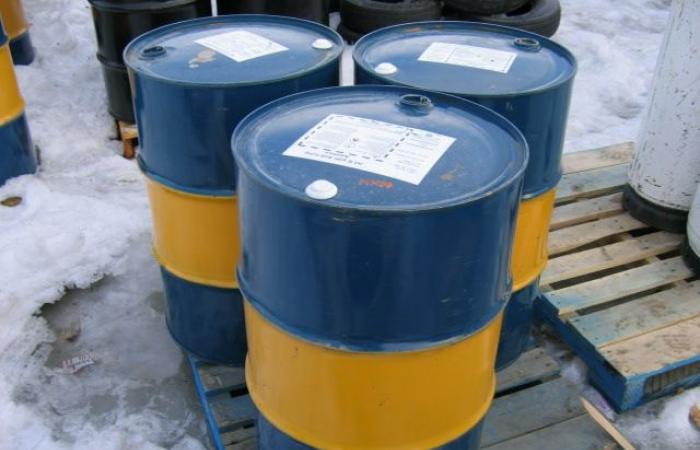Oil prices rise on Friday, driven by the resurgence of the risk of escalation in the Middle East, after the announcement of possible reprisals by Iran against Israel.
Around 9:50 a.m. GMT (10:50 a.m. in Paris), the price of a barrel of Brent from the North Sea, for delivery in January, of which this is the first day of use as a reference contract, rose 2.54% to $74.66.
Its American equivalent, a barrel of West Texas Intermediate (WTI), for delivery in December, gained 2.76%, to $71.17.
Receive our daily edition for free by email so you don’t miss the best news. Free registration!
“Geopolitical fears are re-emerging in markets following reports that Iran could launch retaliatory attacks against Israel,” says Han Tan, analyst at Exinity.
Iran warned on Thursday that it would deliver a “brutal” response to Saturday’s Israeli attack on its military installations, saying Israel would “regret” it, local media reported.
The attack was a retaliation for the October 1 missile attack, when the Islamic Republic, openly determined to eradicate Israel, fired 200 ballistic missiles that sent most of Israel into air raid shelters, the October 1. The strikes resulted in the death of a Palestinian in the West Bank and caused damage to residential areas and military bases – although the army said the attack had no operational impact.
An anti-missile system firing interceptors at missiles fired from Iran, in the West Bank, October 1, 2024. (Wisam Hashlamoun/Flash90)
According to the American media Axios, which relies on an “Israeli intelligence” source, these reprisals would start from “Iraqi territory”.
The market sees a risk on the supply of Iranian oil, Israel having promised “a ‘very hard’ strike on Iran if another missile attack occurs”, underlines John Plassard, analyst at Mirabaud.
Iran is among the ten largest oil producers and has the third largest proven reserves behind Venezuela and Saudi Arabia. It supplied 3.4 million barrels per day in September according to the International Energy Agency (IEA).
“In addition, this risks dragging Iraq into the conflict, the country being a major oil producer,” specify DNB analysts.
Moreover, investors now believe that OPEC+ (Organization of the Petroleum Exporting Countries and its allies) could delay by a month or more the planned increase in oil production in December, which had already contributed to black gold prices on Thursday.
You are one of our loyal readers
We are glad you read X articles from Times of Israël last month.
This is why we created the Times of Israeleleven years ago (nine years for the French version): offering informed readers like you unique information on Israel and the Jewish world.
Today we have a favor to ask you. Unlike other media outlets, our website is accessible to everyone. But the journalism work we do comes at a price, so we ask readers who care about our work to support us by joining the ToI community.
With the amount of your choice, you can help us provide quality journalism while benefiting from reading the Times of Israël without advertisements.
Thank you,
David Horovitz, editor-in-chief and founder of The Times of Israel
Join the Times of Israel community Join the Times of Israel community Already a member? Log in to no longer see this message







